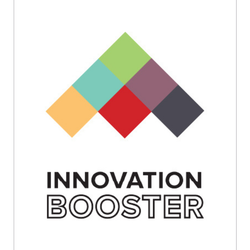
Open
Centennial College
Last Update: March 26, 2025
Canada
Conduct R&D and access college testing facilities
Researchers And Facilities
At a glance
Funding available
Financing goals
No objectives are currently available
Eligible Funding
- No Condition
Timeline
- Open Date : February 8, 2022
Eligible candidates
Eligible Industries
- All industries
Location
- Canada
Legal structures
- All legal structures
Annual revenue
- All revenue ranges
Organisation size
- All organization sizes
Audience
- All groups
Overview
Get access to world-class expertise, facilities and IP when you form a partnership with a university, college or health institution. Use the partnership to help solve complex problems, build proofs-of-concept, improve processes and performance, validate y
Activities funded
Examples of admissible projects:
$ 500,000
Developing renewable energy systems with the University of British Columbia
$ 300,000
Studying climate change impact on agriculture with McGill University
$ 350,000
Collaborative research with University of Toronto for development of AI healthcare solutions
$ 450,000
Creating smart city technologies in collaboration with the University of Calgary
$ 550,000
Exploring new pharmaceutical compounds in partnership with a university
$ 400,000
Advancing drone technology for forest monitoring with University of Alberta
How to apply
1
Preparation of documents
2
Fill out the online application form
3
Submit the required documents
4
Wait for confirmation of receipt
Apply to this program
Frequently Asked Questions about the Centennial College Program
Here are answers to the most common questions about the Centennial College. This section explains what the program is, how much funding is available, eligibility requirements, application deadlines, and other important details to help you determine if this grant is right for your business.
What is the Centennial College?
How much funding can be received?
What expenses are eligible under Centennial College?
What is the deadline to apply?
Is the Centennial College a grant, loan, or tax credit?
Who are the financial supporters of the Centennial College?
Who is eligible for the Centennial College program?
Who can I contact for more information about the Centennial College?
Where is the Centennial College available?
Apply to this program
More programs like this

Grant and FundingOpen
Industrial Research Assistance Program (IRAP) — Financial Assistance
National Research Council Canada (NRC)Financial support for technology innovations

Tax CreditsOpen
Scientific Research and Experimental Development (SR&ED) — Tax Incentive Program
Canada Revenue Agency (CRA)Scientific research and experimental development tax credit

Grant and FundingClosed
Industrial Research Assistance Program (IRAP) – AI Assist
National Research Council Canada (NRC)Supports Canadian SMEs in adopting and integrating advanced AI solutions

Tax CreditsOpen
Clean Technology Manufacturing (CTM) Investment Tax Credit (ITC)
Canada Revenue Agency (CRA)Incentivize Canadian companies to invest in clean technology

Tax CreditsOpen
Clean Technology (CT) Investment Tax Credit (ITC)
Natural Resources Canada (NRCan)Offer up to 30% refundable credit for capital investments in new clean technologies in Canada

Partnering and CollaborationGrant and FundingOpen
Strategic Innovation Fund (SIF)
Innovation, Science and Economic Development Canada (ISED)Strategic Innovation Fund supports transformative Canadian economic investments

Grant and FundingOpen
AI-Powered Supply Chains Cluster (Scale AI)
Global Innovation Clusters (GIC)Funding to enhance supply chains with AI

Researchers And FacilitiesPartnering and CollaborationGrant and FundingClosed
AgriScience Program – Clusters
Agriculture and Agri-Food Canada (AAFC)Funding for agricultural research and innovation collaboration

Wage Subsidies And InternsOpen
Industrial Research Assistance Program (IRAP) — Youth Employment Program (YEP)
National Research Council Canada (NRC)Money to hire a student

Grant and FundingClosed
CFIN Innovation Booster
Canadian Food Innovation Network (CFIN)Funding to advance and commercialize food innovation
Sign up to our platform to access the Centennial College information sheet for free
Get access to 4,000+ programs, practical guides, personalized alerts, and an AI assistant to support your grant applications.